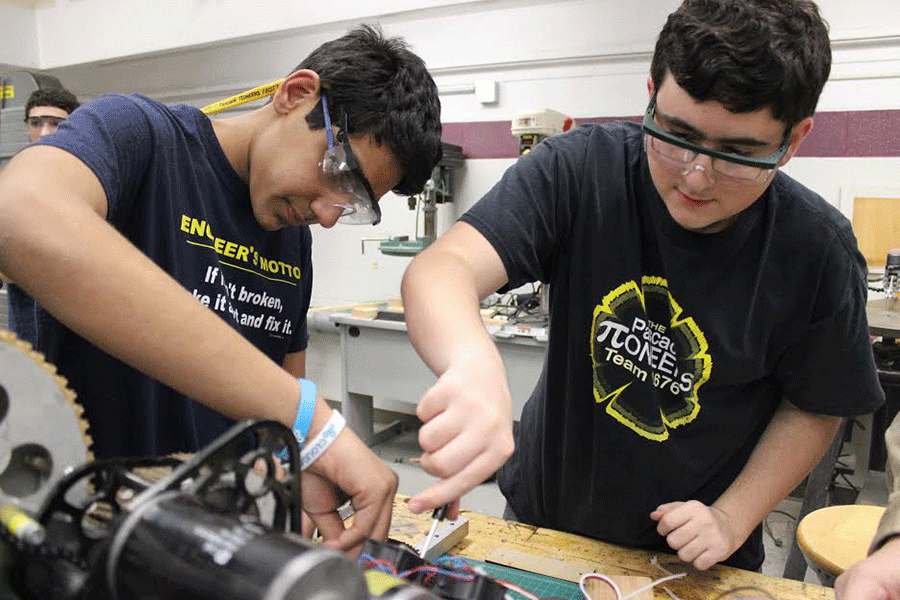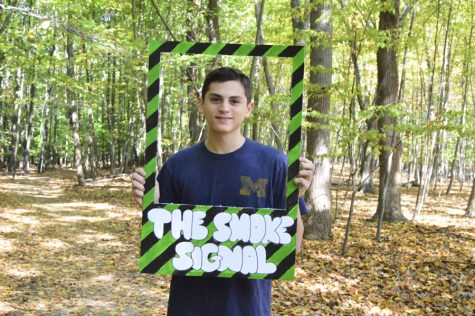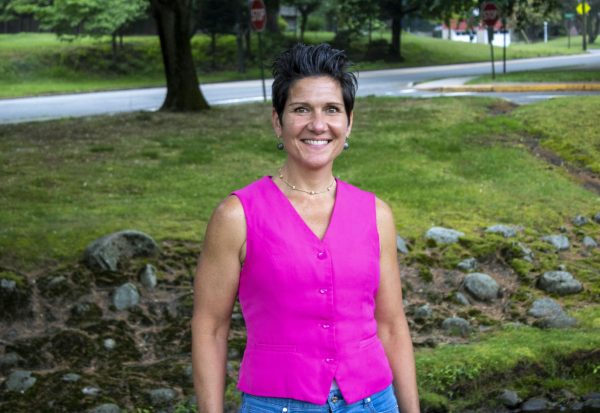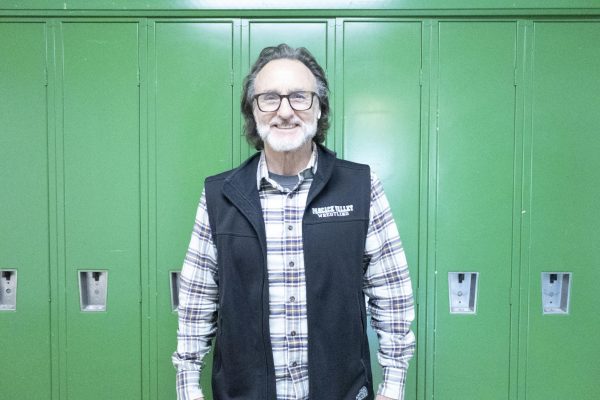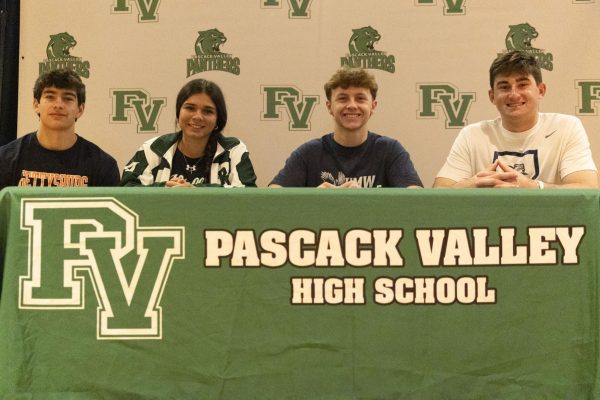Pi-oneering the way to success
Robotics team gains recognition for its successful years
Suraj Pandya (left) and Salvatore Sileo work on the robot.
“The robotics team isn’t just about the robot; rather it is a place where anyone who wants to work hard toward a team goal can succeed,” said Mr. Kevin Killian, head coach of the Pascack Pi-oneers robotics team and math teacher at Pascack Hills.
Since its beginnings in 2004, the Pascack Pi-oneers, or Team 1676, has been an outlet for students who have an interest in technology that can gain exposure to a variety of technical disciplines, including computer programming and mechanical engineering.
In 2008, Killian assumed the head coach position succeeding Mr. Paspalas, an assistant principal at Hills and the Pi-oneers’ first head coach.
“The Robotics Team also has a place for students to participate in marketing, management and other non-technical activities,” Killian said. “We have established a place where anyone who wants to work hard toward a team goal can succeed, where we can celebrate both engineering and community outreach.”
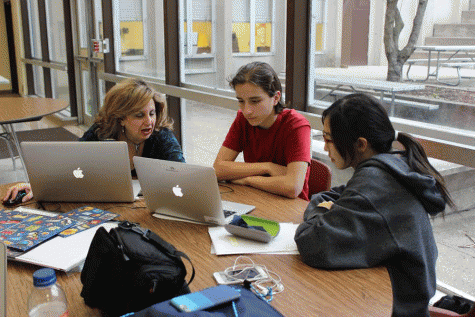
The Pascack Pioneers robotics team is a district-wide club, where students from both Valley and Hills can participate with activities including frame building, modeling and programming robots, graphic design, finance, videography, and marketing.
The Pi-oneers, like many other high school robotics teams, competes in tournaments run by FIRST, an organization committed to helping high school students become interested in STEM fields (science, technology, engineering, and math). By 2020, it is projected that there will be a need for twenty million STEM workers in the US.
For some, it may appear that the Pi-oneers is just fun and games. However, when speaking to current team members, such as Carlie Rein, Suraj Pandya, and Sara Takubo, they would tell you that it takes determination, dedication, teamwork and planning.
“Without passion, there is no motivation or drive,” Carlie Rein said. “Passion moves the team.”
Rein was inspired to join the team after her older brother introduced her to it.
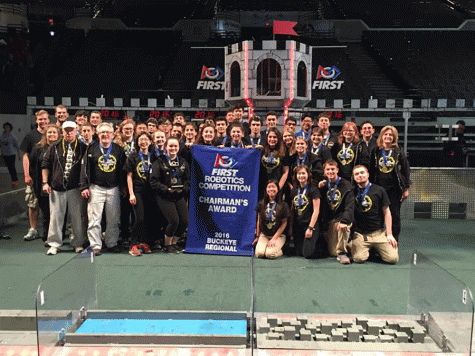
“As a little sister, I got dragged everywhere, but I was mesmerized by the competitions and the team itself,” she said.
The robots that the team builds compete in a number of different kinds of events at competitions, including catapulting a ball into a tower or an elevator-based device.
It all depends on the objective the team is given before the competition. The three divisions then work together for six weeks to build the perfect robot for the competition. Over the course of six weeks the team spends long, countless hours putting together their robot.
The robotics team is split into three divisions: Mechanical, ITRC (Info-Tech Robot Control), and Non-Tech, which each involve different skill sets.
The Mechanical Team specializes in the actual designing and building of the robot and is the most popular division on the team. Specializing in the frame and design of the robot, this team builds the machine that will compete in the tournaments. They also are tasked with building a replica of the map playing field to test the robot in.
The ITRC Team acts as a link between the Mechanical and Non-Tech Teams, focusing on giving the robot it’s functional capabilities including programming the robot and the controller and wiring of the robots and development of the prototypes. The Non-Tech Team handles all of the finance, photography, presentations, and outreach of the team.
Suraj Pandya, a member of the electrical branch, said, “I enjoy working on the team for the hands-on experience. I have loved building since I was young, and being part of the Holdrum Lego Robotics Team fueled my interest.”
This is Pandya’s second year on the team, and he believes that Robotics is instrumental in helping school students become more involved in STEM fields and fosters collaboration between participants.
“Communication between teams is vital for winning,” he said.
Sara Takubo, a freshman and member of the Non-Tech Team, stresses that even though the Non-Tech Division is not involved in the actual building of the robot, it is vital in making sure that the team has proper funds to build their robot and is directly involved in the successful promotion of their creation. However, more importantly, Takubo said that the Robotics team can help young girls become interested in STEM fields.
“Robotics is more than just robots,” she said. “It gave me an experience like no other.”
All of the team’s hard work and dedication has paid off for the team. The Team received their first Rookie All-Star award in 2005, Chairman’s Awards at the NJ Regional Tournament in 2008 and at the Palmetto Regional Tournament in South Carolina in 2009.
Since 2008, the team has been continuously winning Chairman’s Awards, and since 2010, they have been recognized in robot performance.
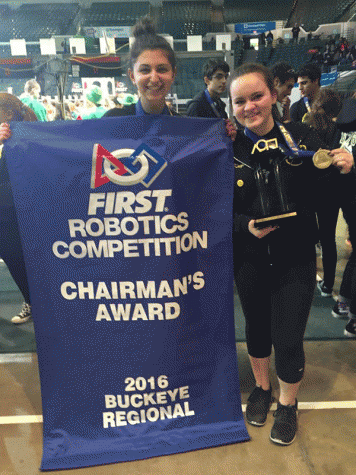
“We have been widely known throughout New Jersey and the Mid-Atlantic region for years,” Killian said. “In the past two years, we are becoming a team that is recognized worldwide in the 3000-team FIRST robotics community.”
This year, the team won two district competitions, the Safety Award, a regional Engineering Inspiration Award, and the Judge’s Award for the Dave Lavery Animation Contest. In addition, The robotics team made it to the quarterfinals for their field level and won the Chairman’s Award at the Buckeye regional competition, the most prestigious at the competition and won one of four World Engineering Inspiration awards.
“I am very proud of this team,” Killian said. “If we have our way, New Jersey will become a leader in STEM education for students. As a result, they will get into better colleges, have better careers, and will draw high tech companies to New Jersey, which will improve the state’s economy and make it a more fertile employment environment.”


